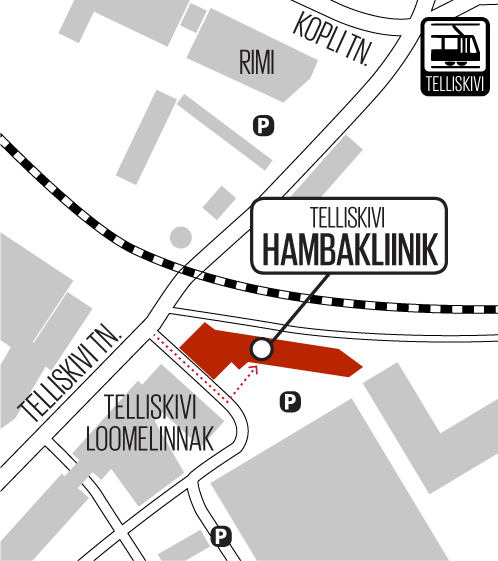Oral hygiene
Proper oral hygiene requires brushing your teeth at least two times a day.
Leave at least 30 minutes between eating and brushing your teeth.
Flossing or interdental brushing should come BEFORE you brush your teeth in the evening.
The toothbrush should be soft bristled unless your doctor tells you otherwise.
Oral hygiene for dentures
Procedures for non-removable dentures/implants usually resemble the usual procedure, but check with your dentist whether any special aids or tools are needed in your case. Removable dentures should be rinsed after every meal. Removable dentures should be removed in the evening before sleep, washed, sanitised according to your dentist’s recommendations and stored in a damp environment until the morning.
Pain
Pain is a signal that your body sends to you to alert you of a problem. Mild pain signals can be caused by excessively hot/cold drink or food or by the sensitivity of worn or exposed root surfaces. In case of excessive discomfort we advise to consult a doctor.
Constant pain signifies a more serious problem – we advise to seek urgent treatment with your doctor. Newly treated teeth may be slightly sensitive to heat, cold or pressure, but the sensitivity should subside within days. If it persists, we recommend consulting your dentist. The use of painkillers such as paracetamol or ibuprofen can provide temporary relief. Don’t forget to read the instruction leaflet!
Bad breath
Typically, bad breath is caused by gingivitis or carious teeth. Consult your dentist to get to the root of the problem.
WHAT TO DO BEFORE AND AFTER DENTAL SURGERY
Before tooth extraction or surgery
- Before the appointment, it is a good idea to eat, brush your teeth and not worry overmuch.
- Take any medications prescribed by your doctor.
- On the day of the surgery, avoid drinking alcohol and smoking cigarettes.
After tooth extraction / surgery
General Information
- For a few days after the surgery, avoid physical exertion and skip the sauna.
- We advise taking painkillers such as paracetamol, ibuprofen or any drugs prescribed by your doctor before the anesthesia wears out. Make sure to read the instruction leaflet!
- On the day after surgery, apply an ice pack on the site of surgery for 30 minutes at a time, leaving 1 hour between applications.
- It is recommended to avoid drinking and eating for 3 hours. After that, we advise to eat soft food that’s light on carbohydrates.
- DO NOT rinse your mouth on the day after the surgery. After that, rinse with a solution recommended by your dentist or with salt water, especially after eating.
- You HAVE TO brush your teeth on the day after the surgery, but using toothpaste is not recommended.
- You may be prescribed antibiotics to prevent infection.
- Medication should be used properly in accordance with the instructions.
- On the day of the surgery, avoid drinking alcohol and smoking cigarettes.
Bleeding
- The wound may bleed slightly. It is recommended to use a sterile gauze compress to stop the bleeding (available in pharmacies).
- Apply the compress to the wound and lightly press your teeth together.
- In case of more serious bleeding, consult your dentist.
Pain
We advise taking painkillers such as paracetamol, ibuprofen, or a medicine prescribed by your doctor before the anesthesia wears out. Make sure to read the instruction leaflet!
Bruising
Use an ice pack on the day after the surgery to prevent bruising.
Bruising generally dissipates within a week.
Fever
You may experience a mild fever for a few days after the surgery.
If necessary, take fever-reducing medication and consider antibiotic treatment.
Consult a doctor.
